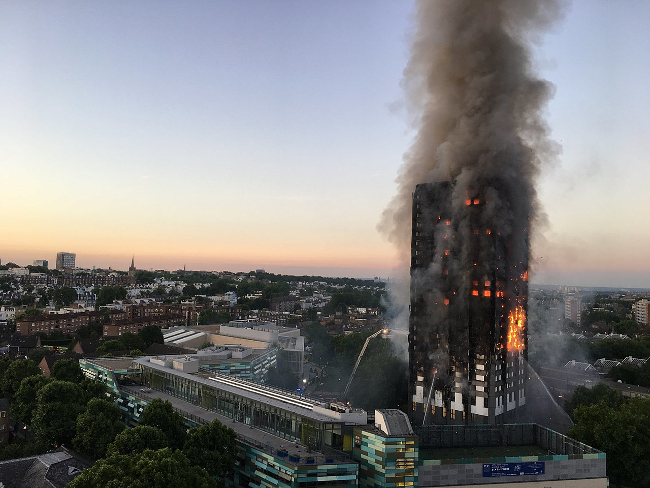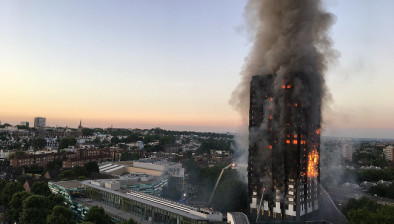‘Massively significant’ Grenfell Tower inquiry report published

Image credit: Natalie Oxford
A professor of fire and structures at the University of Edinburgh has published a new report which details the flaws with the government’s former safety research and testing body that ultimately led to the death of 72 people following the Grenfell Tower fire five years ago today.
The report, written by Professor Luke Bisby, who is also an expert witness to the Grenfell Tower Inquiry, shines a light on the Building Research Establishment (BRE) which was privatised in 1997 and responsible for testing many of the cladding, insulation and other building materials used in the Grenfell refurbishment.
The report details previous cladding fires which can be viewed as missed opportunities to prevent Grenfell, and BRE failures around them. It also builds up a picture of BRE only doing work within contracts, and only specific things – close to client and government demands - within those contracts.
Professor Bisby concludes that “what emerges from this overview of the development of England’s building regulatory environment, and the major cladding fires that have occurred during the same period, is a picture of increasing freedom for industry…”. He also highlights a “profound lack of competence of actors” including the BRE and “powerful commercial and ideological objectives” to increase flexibility for industry.
The Fire Brigades Union has termed the report as “massively significant” evidence.
The union believes that many of these flaws can be explained by the privatisation of BRE and the creeping, increasing influence of the private sector in the BRE in the years running up to the completion of full privatisation.
Mark Rowe, Fire Brigades Union national officer, said: “Professor Bisby’s report details multiple failings on the BRE’s part in the run-up to Grenfell, failings which were caused – fundamentally – by private ownership and the increasing encroachment of the private sector. It is massively significant.
“We are clear: the BRE was not, and is not, fit for purpose, because it is privately-owned. It is vital that the BRE is taken back into public ownership and run for the public good, not profit.
“In the run-up to Grenfell their status as a private company meant that they were dependent on fee income from clients, such as Grenfell manufacturers. This made them too willing to please clients and too reluctant to challenge them or the information they provided. The BRE’s private status also meant it did not share information as it should have done, and there were basic failures of competence in vital areas.”
A spokesperson for BRE said: “BRE is owned by a charitable trust, and has been since 2002. BRE was not involved in the testing or classification of the cladding installed on Grenfell Tower at the time of the tragic fire, and there has never been any evidence of a conflict of interest between BRE’s advisory work and the testing and certification services the organisation provides. BRE continues to support the Grenfell Tower Inquiry to ensure that a tragedy such as this can never happen again.”
Firefighters from fire brigades across the UK are marking the fifth anniversary of the Grenfell disaster today by participating in the silent walk organised and led by the bereaved, survivors and residents of Grenfell.
The silent walks, which have taken place in the five years since the disaster, are held to mark those who lost their lives and call for justice for the disaster, with to date no one facing criminal charges.























